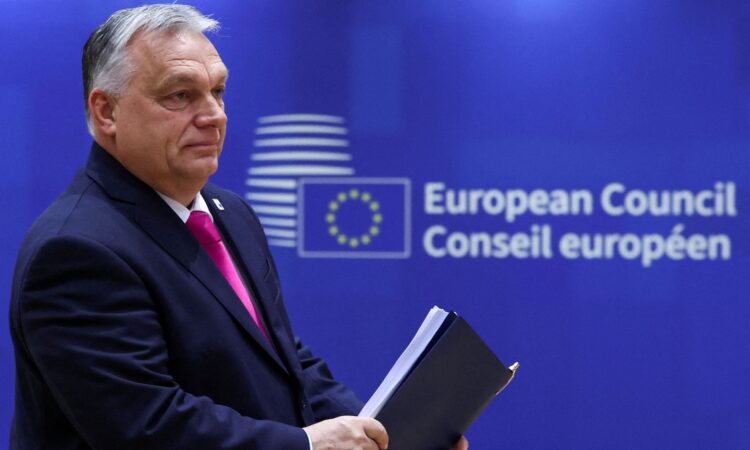
It is not clear, however, if that will work.
Brussels and Budapest have been feuding for years, but Orban crossed a new line in recent months by blocking the aid at a particularly dangerous moment for Ukraine, according to officials and diplomats.
Concerned by bleak reports from the battlefield and stalled support from the United States, most E.U. countries now see money for Ukraine as an urgent, if not “existential,” issue — and Orban as an ever more serious threat to collective efforts to stave off Russian designs on the continent.
That has forced the bloc to consider new ways to get around the Hungarian veto in the short term and is bolstering calls for changes to E.U. rules on unanimous voting over the longer run.
“More and more are considering that this way of functioning with unanimity on these key questions is making us weak, is making us vulnerable and that this is probably something that we need to change,” said Daniel Freund, a German member of the European Parliament with the Greens political group.
But it could be years before the E.U. gets close to changing its rules — if it happens at all. For now, the focus is finding a way to muddle through well enough to keep Ukraine in the fight.
At a summit in December, the E.U. managed to move forward on Ukrainian accession by getting the Hungarian leader to simply leave the room for the vote — absurd, but effective. Ahead of Thursday’s summit, E.U. officials are still trying to work with Orban. If they can’t, they will consider other ways to cut him out.
Working with Orban, however, means figuring out what the Hungarian prime minister wants, which E.U. officials say is unclear. In recent months, top E.U. officials, French President Emmanuel Macron and other would-be Orban-whisperers have tried to get to the bottom of his demands.
A clear Hungarian priority is the chance to review the budget each year. An agreement on this may be possible, officials said, but any deal would need to address fears that reviews will lead to even more time-wasting battles between Budapest and Brussels and keep Ukraine’s funding in a permanent state of flux.
Orban’s antics may also be aimed at pressuring Brussels to unlock billions in E.U. funding that was frozen over rule-of-law concerns. The European Commission unfroze more than $10 billion last year, citing improvements, but Hungary would still like to get the rest.
Lastly, Orban seems to be using the standoff to play to populist sentiment at home and rile up E.U. skeptics ahead of European elections in the spring.
If Hungary won’t budge on Ukraine, Plan B, for now, would be to find a way to go forward without them by getting the 26 other members countries to contribute to Ukraine on their own, outside the E.U. budget. But that would require a lot of complex coordination and possibly the involvement of some parliaments.
Some E.U. officials and diplomats have also raised the possibility of activating a mechanism to suspend Hungary’s voting rights. The rule, known as Article 7.2, can be used in cases where there is a “serious and persistent breach by a member state of the founding values.”
But experts said this option is probably not going to happen, at least not yet. “I don’t believe Article 7, with the current conversation that we have, is actually realistic,” said Camino Mortera-Martinez, who leads the Brussels office at the Center for European Reform.
“You have to be very careful with the kind of things that you do to one member state,” she added, “(a) because of the backlash, and (b) because it has to be effective.”
This week, the Financial Times published details of a Council of the E.U. document that suggested that leaders could deliberately shake faith in Hungary’s economy to bring Orban back to the table.
Jacob Kirkegaard, a senior fellow at the German Marshall Fund, interpreted the leak as a signal to Hungary’s leader. “He is obviously trying to blackmail,” he said, and now the E.U. is saying, “we can blackmail too, and we have a bigger gun.”
Perhaps predictably, Orban fired right back, writing on X, formerly known as Twitter, “Hungary cannot be blackmailed.”






